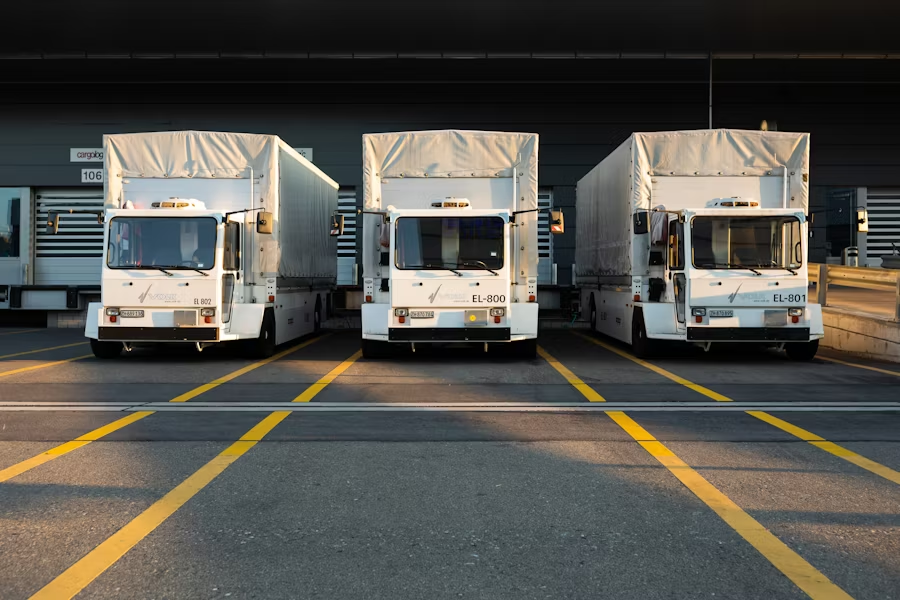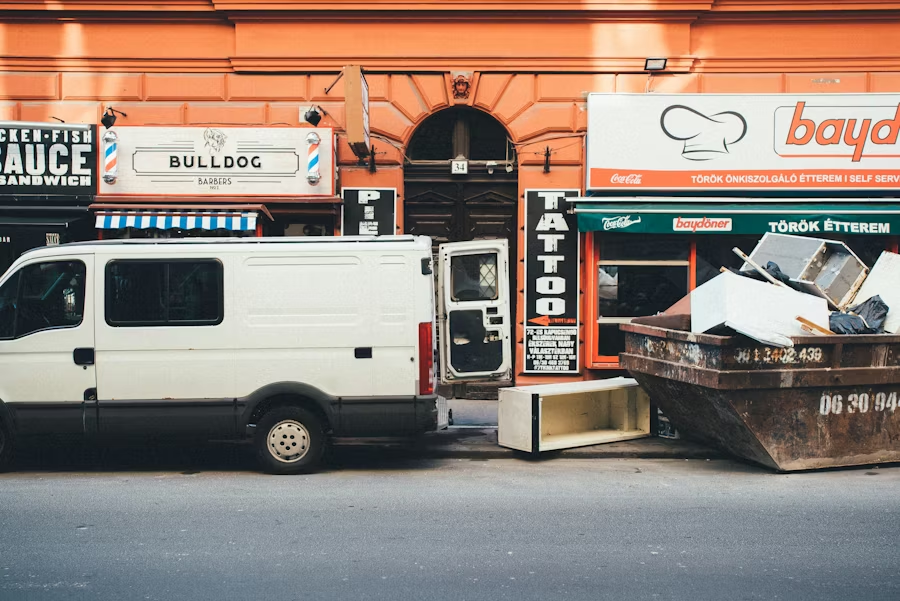A Guide to Trailers for Small Business Owners
.png)
If you run a small business that involves moving goods, tools, or equipment, chances are you have thought about buying a trailer. Whether you are in construction, landscaping, retail, or any trade that requires transporting materials, a trailer can make your life significantly easier. But with so many options available, how do you know which one is right for you?
This guide breaks down everything you need to know before making that purchase.
Why Trailers Are Essential for Small Businesses
The Role of Trailers in Daily Operations
For many small business owners, trailers are not just helpful—they are necessary. Think about it. If you are a landscaper, you need a way to haul soil, plants, and equipment. If you run a construction business, transporting tools and materials to job sites is part of your everyday routine.
Owning a trailer gives you control over your logistics. You are not waiting on delivery schedules or paying for third-party transport every time you need to move something. That kind of independence can save you both time and money in the long run.
Cost Benefits of Owning vs Renting
Renting a trailer might seem like the cheaper option at first. But if you are using one regularly, those rental fees add up quickly. When you own your trailer, you pay once and use it whenever you need it.
Plus, a trailer is an asset. It adds value to your business and can even be sold later if your needs change. For most small businesses, ownership makes more financial sense over time.
Understanding Different Trailer Types

Not all trailers are built for the same purpose. Here is a quick overview of the most common types and what they are best suited for.
Box Trailers
Box trailers are the workhorses of the trailer world. They have enclosed or semi-enclosed sides, making them great for carrying tools, furniture, or general cargo. If you need something versatile that can handle a bit of everything, a box trailer is a solid choice.
Flat Top Trailers
These trailers have an open, flat surface with no sides. That makes them ideal for carrying oversized or bulky items that would not fit in a box trailer. They are popular in construction and agriculture because you can load them from any angle.
Tipper Trailers
If you deal with loose materials like soil, gravel, or waste, a tipper trailer will save you a lot of effort. The hydraulic tipping mechanism lets you unload everything in seconds without lifting a finger. Landscapers and builders love them for this reason.
Car and Plant Trailers
These are designed for transporting vehicles, machinery, or heavy equipment. They come with ramps and multiple tie-down points to keep everything secure during transit. Mechanics, equipment hire businesses, and car dealers often rely on these trailers.
Key Factors to Consider Before Buying
Before you commit to a purchase, there are a few things worth thinking about.
Load Capacity and Size Requirements
Start by assessing what you will be hauling most often. What does your typical load weigh? How much space does it take up? Choose a trailer that matches your regular needs but also leaves room for occasional heavier loads. And keep future growth in mind—your business might need more capacity down the line.
Build Quality and Materials
A cheap trailer might save you money upfront, but it could cost you more in repairs and replacements later. Look for trailers made from galvanised steel, which resists rust and corrosion. Check the welding and overall construction. Australian-made trailers often meet higher quality standards, so they are worth considering.
Warranty and After-Sales Support

A good warranty protects your investment. Make sure you understand what is covered and for how long. It is also important to choose a supplier that offers reliable after-sales support. If something goes wrong, you want to know that spare parts and servicing are accessible. For business owners in Western Australia, Perth trailers from reputable local suppliers often come with strong warranties and dedicated support teams that understand regional needs.
Maintenance Tips to Extend Trailer Lifespan
Buying a quality trailer is just the first step. Proper maintenance keeps it running smoothly for years.
Regular Inspections and Checks
Get into the habit of inspecting your trailer regularly. Check the wheel bearings, tyres, and brakes. Make sure all lights and electrical connections are working before hitting the road. Catching small issues early prevents bigger problems later.
Proper Loading Practices
Always respect the weight limits displayed on your trailer's VIN plate. Overloading puts strain on the axles and can cause serious damage. Distribute weight evenly across the trailer and secure your cargo properly using tie-downs. It keeps your load safe and your trailer in good shape.
Cleaning and Storage
Dirt, salt, and grime can wear down your trailer over time. Give it a good wash regularly, especially if you have been hauling corrosive materials. When you are not using it, store your trailer in a covered area if possible. A little care goes a long way.
How to Choose the Right Supplier
Where you buy your trailer matters just as much as what you buy.
Reputation and Reviews
Do your homework. Look for suppliers with positive customer reviews and a solid track record. Avoid sellers who are vague about where their products come from or how they are made.
Range of Options and Customisation
A good supplier offers variety. You want access to different trailer types so you can find the right fit for your business. Bonus points if they offer customisation options for specific needs.
Location and Accessibility
Choosing a supplier with a local presence makes servicing and support much easier. If you are based in regional areas, proximity to your supplier can also reduce delivery costs and wait times.
Conclusion
Choosing the right trailer is a decision that can impact your business for years. Take the time to understand your needs, explore the different types available, and prioritise quality over price. A reliable trailer paired with a trustworthy supplier will serve you well and help your business run more efficiently.
Frequently Asked Questions
What trailer type is best for general business use?
Box trailers are the most versatile option for small businesses. They work well for transporting tools, equipment, and general cargo across various industries.
How do I know what load capacity I need?
Calculate the average weight of your typical loads and add a buffer for heavier jobs. Also consider whether your business might grow and require more capacity in the future.
How often should I service my trailer?
Inspect your trailer after the first 50 kilometres of use, then every six months or more frequently if you use it heavily. Regular checks prevent costly repairs.
Can I finance a trailer purchase?
Yes, many suppliers offer third-party financing options. This can help spread the cost and make ownership more accessible for small business owners.
Source: https://unsplash.com/photos/a-semi-truck-parked-on-the-side-of-the-road--8lc02ugtysv
Source: https://unsplash.com/photos/white-and-brown-rv-trailer-HfYk04kY0ZQ
Source: https://unsplash.com/photos/a-white-van-parked-in-front-of-a-building-Ub8a0ttIUQU

.jpg)
